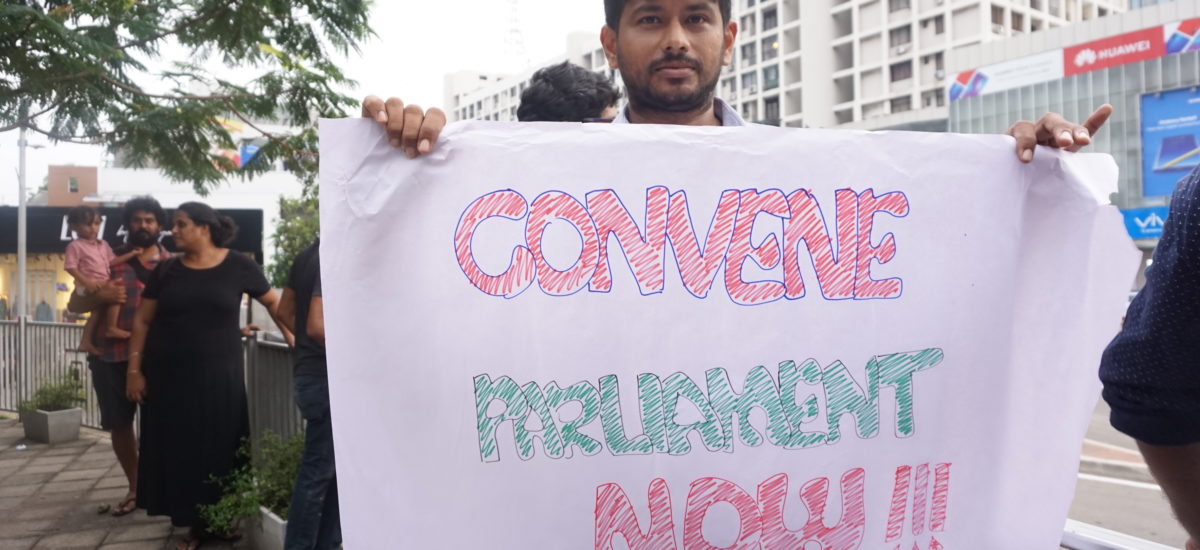President Sirisena’s actions in dissolving Parliament on the night of November 9 is yet another blatant violation of an explicit provision of the constitution. If the President violates the constitution so frequently with impunity, this opens the door for dictatorial rule. This is the gravest constitutional crisis Sri Lanka has had since independence. It also marks the beginning of total break down of the constitutional government, rule of law as well as law and order in the country. Even Mahinda Rajapaksa did not violate the constitution in this way. He changed the constitution when he found that the existing constitution was not adequate for his political objectives.
President Sirisena’s gross violation of the constitution by sacking the Prime Minister on October 26 created a political crisis which he could not resolve. The locking up of Parliament through proroguing it and his failure to garner a majority to legalise the appointment of Mahinda Rajapaksa as Prime Minister aggravated the political mess he himself created. He has opted for the path of total disregard of the constitution as well as constitutional morality to handle a crisis caused by one grave violation by him of the constitution.
The Supreme Court is the only forum now available to the UNP as well as any citizen on this issue. But it is not clear whether the UNP is opting for this path. If the matter is brought before the Supreme Court, the judges will have to decide on a very controversial political issue.It will be a test case for the Court’s sense of independence as well as its constitutional duty to uphold and protect the constitution, its democratic values, and democratic freedoms of the citizens.
Holding elections after an illegal and unconstitutional dissolution of parliament is not democracy. The election campaign would be a bitter fight between political adversaries.
President Sirisena’s unrepentant violation of the constitution raises very serious questions about the political choices he is making now. He can only plunge the country from one crisis to another and take the country down the path of Myanmar, or turning it into a banana republic where the law and the constitution do not matter.
People of the country should unite and fight together to save democracy from the gravest threat it is facing since independence. Yet, public option would be sharply divided on this issue and not everyone would be interested in saving democracy.
A broad democratic front of political parties, civil society and citizens need to be formed to defend Sri Lanka’s democracy.

